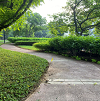How to write a Poem?
I have often been asked about the process of writing a Poem – how it differs from writing a novel or a short story, where does one draw inspiration from, the rigour and the discipline, how often I write, where I write, if there is a ritual I follow and so on. I’ll admit that I had to think about it because usually I have no plan or a process. There are days when I write furiously and then months when I struggle to put pen to paper. Usually, the struggle is self-inflicted, a direct result of living mindlessly – yes that happens even to the people who try to live mindfully. In my case it’s usually when work takes precedence over everything else, when I hurtle down on the highway of burnout and see pit stops of self-care whizzing past as mere blurs. So yes, I struggle to write.
But then I had an epiphany -an acknowledgement that there was never a process, and I don’t need one either. I realised that mostly the “Poem” offered itself to be written through me, but only if I saw it. So, the question was:
How to see a Poem?
Most of the Poems were walking companions. There were always there, like djinns, who would, if they took a fancy to you, offer to reveal themselves. But you had to be in the moment, to be open to feel them around you, to invite them into your soul. Sometimes a Poem appeared as a concept – nebulous, layered, nuanced, covered in a haze of words. Sometimes a puzzle asking to be solved, sometimes a message waiting to be understood.
The Poem ‘The Strand’ appeared to me while I was walking down a beautiful path in the garden, my troubles weighing me down, when I saw this leaf hanging mid-air, somehow saved from being trampled, and this Poem presented itself to me, and to probably anyone who was looking for some hope.

The strand
The leaf was held by a strand
A single thread of a spider’s web
All but invisible
as it swayed with the breeze grasping the leaf.
My Beloved,
Is my hope like this silken thread
That anchors me to you
One that you send
Unfailingly,
Each time,
To my rescue? -from The Vast Empty
But almost every time, the Poem felt like a divine friend whispering an ancient secret into my ear. What I needed to do was to be still. What I needed to be was worthy of it. So now the question is:
How to be worthy of a Poem?
Poets, I am told, are a different breed altogether. Some write on nature, some on love, some on social justice, or a lack of it, several write on freedom, war, inequality, pain, sorrow, death –there is no topic that a poet hasn’t covered.
But the fundamental thing that binds them all together is sensitivity, intensity, and empathy. Poets feel more deeply than anyone else I dare say. They sense and feel things acutely, then ruminate over these feelings contemplating it from every possible angle and allow it to ferment in their hearts and minds. They observe, they sense another’s pain, they wonder how it is to walk in another’s shoes, and they explore how it makes them feel, but unlike most who run away from their feelings and truths, poets turn around and face them squarely allowing these thoughts to wash over them and to settle into them. They have the courage to be vulnerable. It is this sense of openness and fearlessness to feel deeply that makes them worthy of the kind of writing that moves humanity so deeply.
Because finally all Poems are nothing but an ode to humanity.
A mesmerising collection of poetry “The Vast Empty” by Turiya effortlessly transports readers on an introspective journey through the vast landscapes of human emotions.
The book contains 65 poems that are beautifully written. The book aims to guide readers through a meditative experience, encouraging them to reflect on their inner selves and find tranquility. The exploration of stillness, the beauty of life, and the discovery of one’s own divinity makes The Vast Empty a spiritual and introspective journey.
Through exploring universal themes such as love, loss, and the human condition, Turiya encourages readers to look within themselves and gain a deeper understanding of their own emotions and experiences. The empathy and compassion with which Turiya writes is truly remarkable.
Turiya, the pseudonym adopted by Mamta Chander, is a poet rooted in India. Her work is richly imbued with the profound influence of Eastern philosophy and mysticism, and she derives creative inspiration from the natural world and the writings of Rainer Maria Rilke. Mamta Chander is a Gurugram-based senior management professional. An alumnus of IIM Calcutta, she has worked for 25 years and now leads a large global team of consultants.
Related Article: How to Publish a Book in India – A Complete Guide



